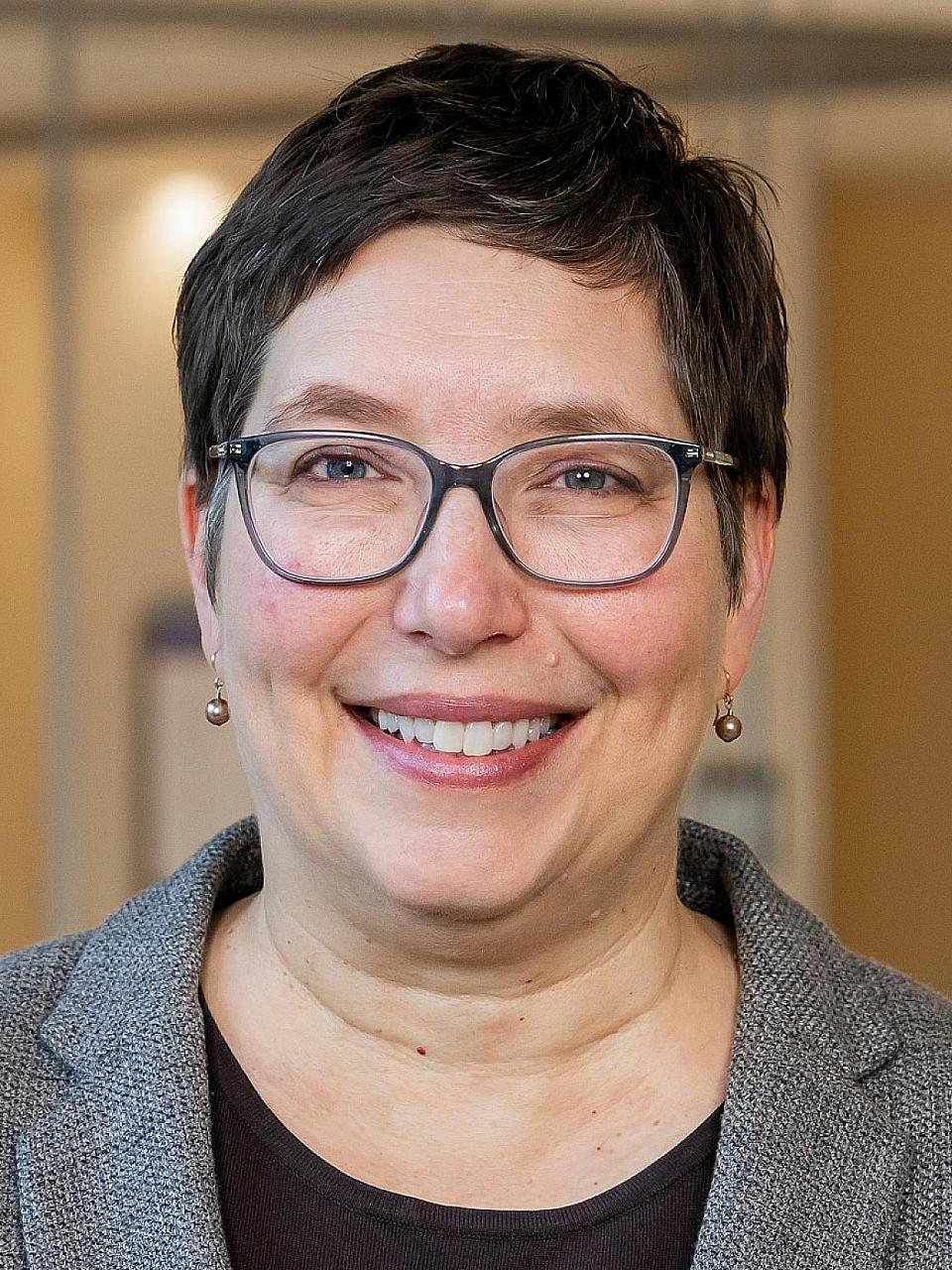Voices of U of U Health
Leader Profile: Katharine Ullman Mentors the Next Generation of Cancer Researchers
I planted roots in Utah 26 years ago when I joined Huntsman Cancer Institute at the University of Utah. But my Midwestern values still have an influence on me.
From a young age, I had a desire to help others and promote fairness. This desire led to an interest in cancer research—combining my passion for science with a commitment to improving cancer care.
I’ve had the opportunity to serve in a variety of leadership roles throughout my career. With each new opportunity, I’m helping the next generation of researchers and health professionals find their own path to helping others.
A Desire To Work With Research Trainees
Early in my career, leadership was not something I necessarily set my sights on. But I naturally gravitated to positions that allowed me to train and advocate for students. For several years, I was associate dean for the Graduate School at the University of Utah.
My desire to work with research trainees led me to my current role as senior director of cancer training and career enhancement. In this role, I co-direct the Office of Cancer Research Training and Education Coordination at Huntsman Cancer Institute.

From High Schoolers to Postdoctoral Scholars
I work with trainees at all levels. I help create and coordinate opportunities for high school students, undergraduates, graduate students, and postdocs to participate in cancer research. I also oversee outreach to potential program participants.
Our training and education programs allow students to work in our labs or have virtual experiences that expose them to various aspects of a career in cancer research.
The following programs are included:
- Summer Health Care Experience In Oncology (SHE), funded by the American Cancer Society. SHE focuses on female high school students (many of which live in rural communities) in the Mountain West who might not otherwise have exposure to a career path in cancer research.
- PathMaker programs offer summer research experiences for high school and undergraduate students. They live on campus in the dorms while learning in our cancer research labs. PathMaker Bridge is a similar program for middle and high school science teachers. They bring insights from their research experiences back to students in the communities we serve.
- 5 For The Fight cancer research internships focus on students from historically black colleges and universities interested in cancer research careers. Interns complete an independent research project under the guidance of a faculty mentor and present their work at the Summer Research Symposium.
- Career training and professional career development for grad students and postdoctoral scholars. Because postdocs don’t fall into the category of student or faculty, they can sometimes fall between the cracks. I meet regularly with postdoc leaders to learn about and plan ways to support their needs.
A Focus on Fairness and Listening
Fairness is one of my core values and it motivates me every day. We’re trying to create a fairer playing field for trainees who may not know these pathways are open to them.
As a leader, I pride myself on being helpful and promoting fairness, but that isn’t enough by itself. I also try to listen and be empathic.
Listening comes naturally to me because I’m a quiet person. I try to use that as a strength, to absorb the feedback I receive. And trying to empathize with my trainees and colleagues helps me to see things better from their perspective.

Developing Mentors
Mentorship is very important to me. In my role, I work with junior faculty—and others who interact with trainees—to become better mentors. The Office of Cancer Research Training and Education Coordination offers a series of workshops aimed at grad students and postdocs who work in labs or on research teams.
They have their own mentors, and they are also put in the position of mentoring their peers. I’m hopeful that our workshops will help trainees become better mentors while learning to make the most out of the mentorship they receive.
.jpeg)
Future Vision
As I move through my first year in this new leadership role, my initial goal is to grow and support existing programs. In the longer term, I would like to expand our offerings to promote more opportunities and provide even greater support for our trainees.
For example, I would like to expand the SHE program to anyone living in rural communities with limited exposure to opportunities in cancer research.
It’s an exciting time in science but the climate can sometimes be discouraging. One of the challenges that I hope to address is making sure that younger scientists are excited about pursuing a research career, despite real or perceived obstacles.
We want trainees from all backgrounds to see a career in research or health care as a very viable path and acquire the skills to successfully pursue these careers.
We also want trainees to become part of our community. We know that some of our cancer research trainees will find opportunities elsewhere. But some trainees do stay at U of U Health.
We’ve had high school trainees who have continued on to our PathMaker program. And PathMaker students who have attended our medical school. I’m eager to work with even more trainees to help them find their place in the field of cancer research, whether at the University of Utah or beyond.
